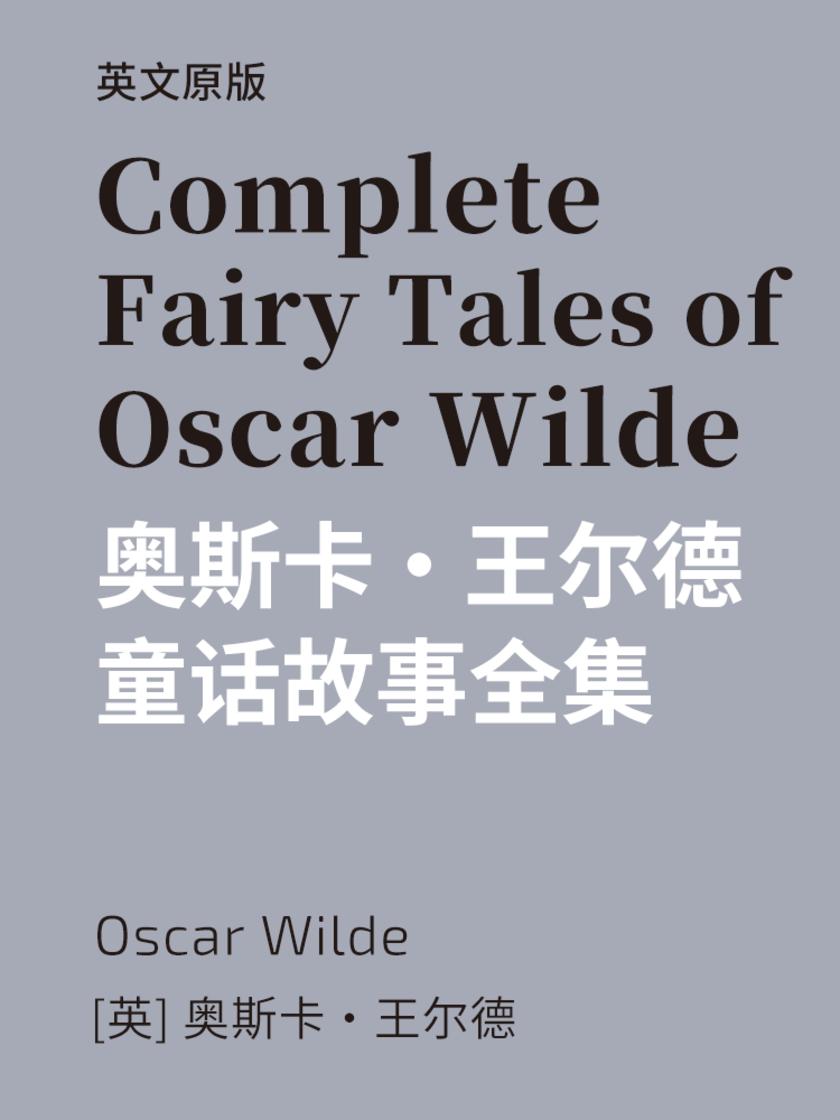
Complete Fairy Tales of Oscar Wilde 奥斯卡·王尔德童话故事全集(英文版)
¥29.99
本书收录王尔德创作的全部九篇童话作品。包括《夜莺与玫瑰》《巨人的花园》《快乐王子》等名篇。

The Second Shot 第二枪(英文版)
¥39.99
《The Second Shot》为英国推理作家安东尼·伯克莱代表作。 在《第二枪》中,罗杰·谢灵汉要调查他职业生涯中*不寻常的案件——广受欢迎的男子埃里克神秘死亡。 在这本讲述谋杀案而非侦破谋杀案的故事中,农场发生的致命枪击事件原来并非如人们*初所猜测的那样,是意外事故。 警方的调查揭开埃里克的新丑闻——他与当地的一位 “荡妇 ”私情。 *后,凶手承认自己的身份和动机……
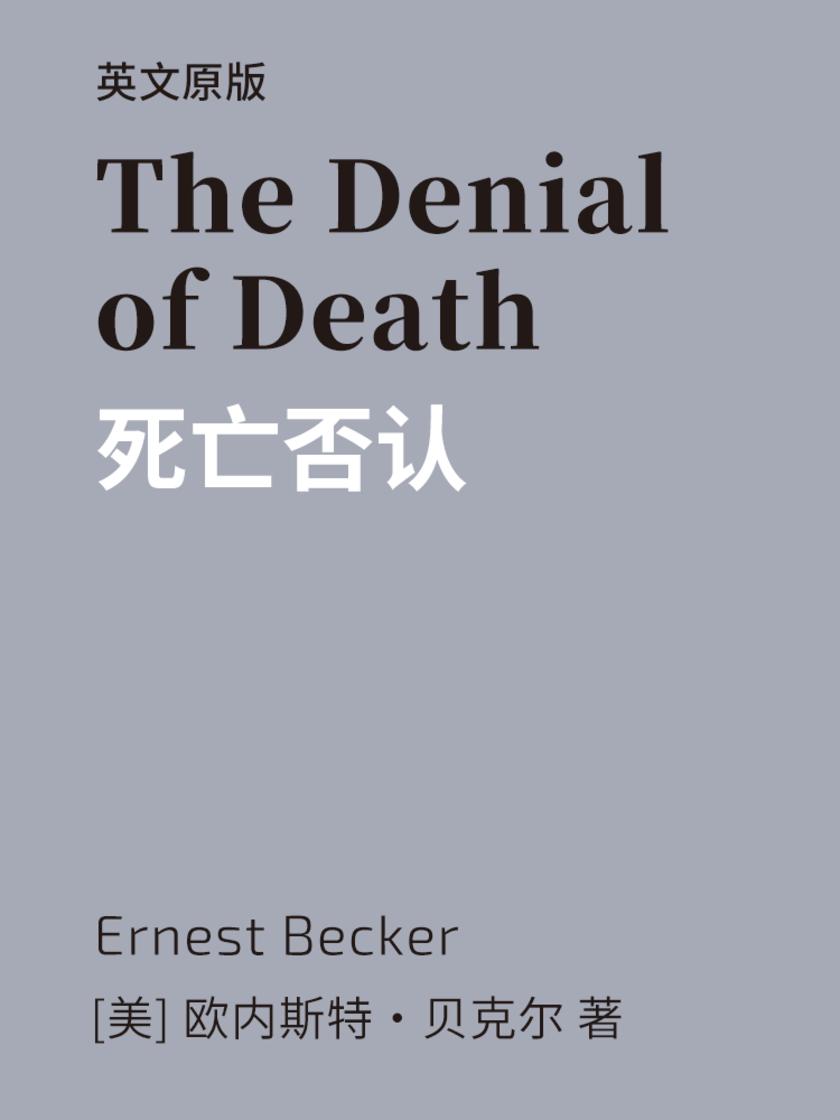
The Denial of Death 死亡否认(英文版)
¥39.99
从历史的角度来看,现代人都是孤儿——当宗教已然衰落,而取代宗教的科学,又无法提供令人满意的生命意义,作者为现代人碎片化的心灵找出重新整合之道——练习直面死亡,在畏惧死亡的阵痛中让生命不断更新

Decline and Fall 衰落与瓦解(英文版)
¥29.99
伊夫林·沃成名作,将英国体育精神、牛津大学的文化完美性以及英国绅士不可侵犯的荣誉准则毁于一旦。

The Wayward Bus 一辆名叫“甜蜜之心”的大巴(英文版)
¥39.99
本书是斯坦贝克在出版《愤怒的葡萄》后的*部长篇小说。 斯坦贝克的想象力在这部充满想象力而又不带感情色彩的作品中得到完美的呈现。大巴行驶在加利福尼亚的小路上,运送着迷失者和孤独者、善良者和贪婪者、愚蠢者和诡计多端者、美丽者和恶毒者,让他们远离破碎的梦想,并有可能走向未来的希望。

Sweet Thursday 甜蜜星期四(英文版)
¥39.99
在加利福尼亚海岸的蒙特雷,人们把 “糟糕星期三 ”后的第二天称为 “甜蜜星期四”。 约翰·斯坦贝克再次回到《罐头厂街》,为读者展现了一个充满欢笑和泪水的世界。
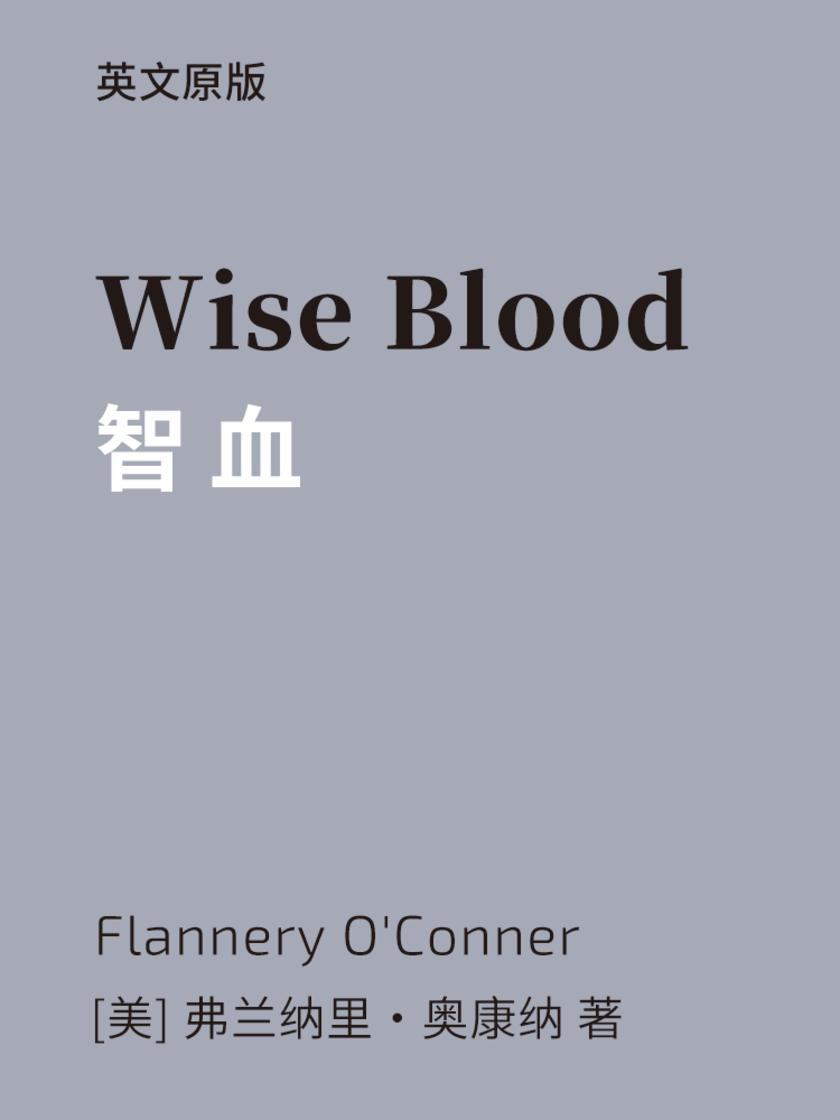
Wise Blood 智血(英文版)
¥29.99
乡村牧师家庭出身的黑兹尔从小就希望长大后成为一名牧师,然而,在当兵参加战争的几年里,他的信仰发生了动摇——他发现自己的灵魂已然不复存在。复员后他离开家乡,到了一座名叫托金汉姆的城市,试图创立一个“没有耶稣的新教”,然而沉溺于物质生活中的公众对他有关罪恶信仰的谈论漠不关心,而他所宣传的这种新教竞被人利用——假冒先知以行骗……
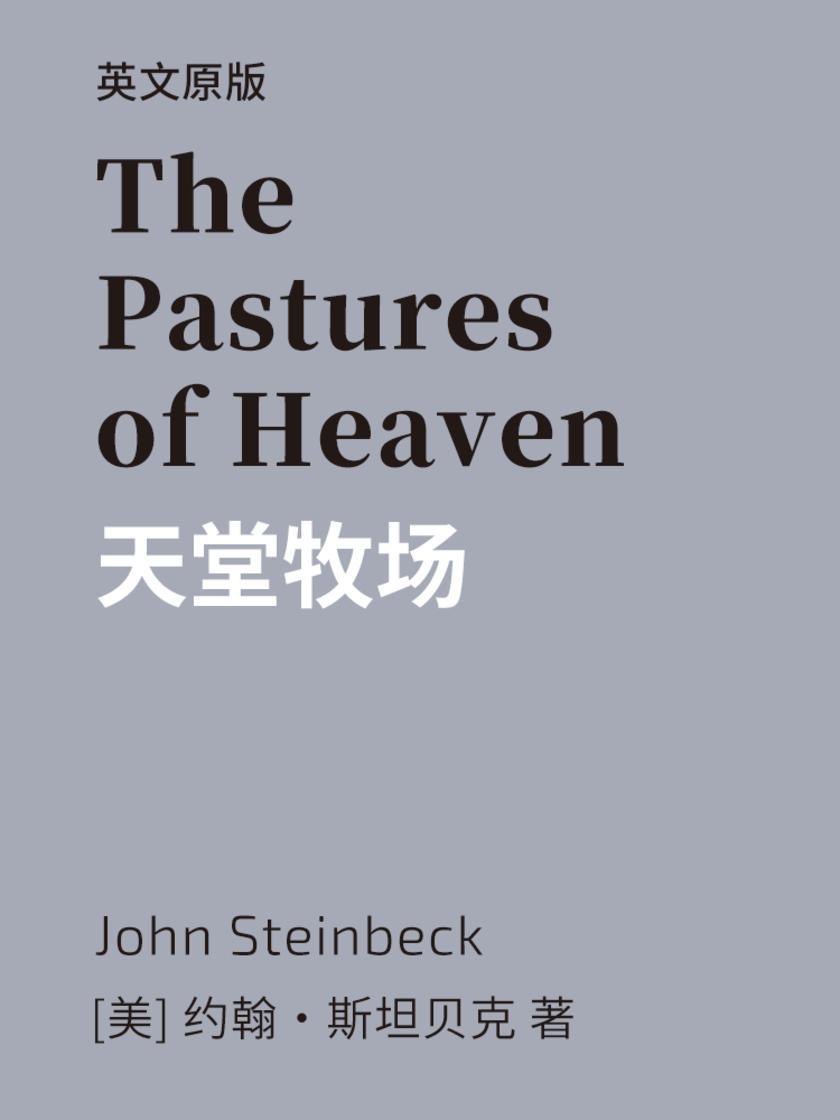
The Pastures of Heaven 天堂牧场(英文版)
¥29.99
本书是斯坦贝克短篇小说集代表作。 每个故事都以生活在加利福尼亚州蒙特雷郊外肥沃山谷中的家庭为背景,讲述一个特殊家庭对所有家庭的影响。斯坦贝克在这部作品中遵从了两个重要的文学传统:美国自然主义,关注自然本能与遵守社会规范的要求之间的冲突;以及短篇小说循环。

Flush 阿弗小传(英文版)
¥29.99
“事情并不简单,而是错综复杂的。如果它咬了布朗宁先生,那是因为他也咬了她。仇恨并非只是仇恨;仇恨也可以是爱。” 弗吉尼亚·伍尔夫为诗人伊丽莎白·巴雷特·勃朗宁(Elizabeth Barrett Browning)的西班牙猎犬所著的传记,令人愉悦,探讨了作为人类以及作为狗的意义。
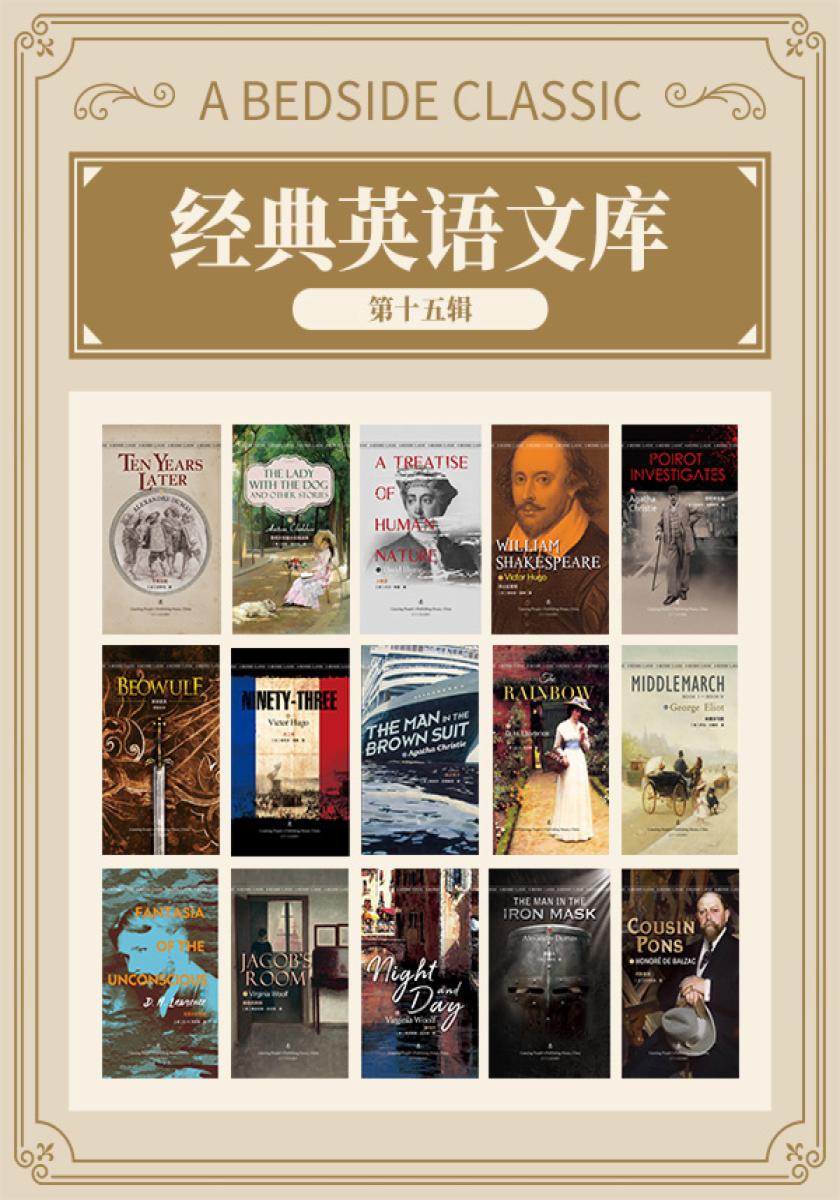
最经典英语文库(第十五辑)共15册
¥256.85
告别碎片式阅读,从阅读经典开始。“最经典英语文库”系列丛书(15辑)共15册:《虹》《无意识幻想曲》《邦斯舅舅》《米德尔马契》《十年以后》《贝尔武夫(英国史诗)》《人性论》《褐衣男子》《九三年》《莎士比亚传》《夜与日》《雅各的房间》《铁面人》《契诃夫短篇小说精选集》《首相绑架案》。
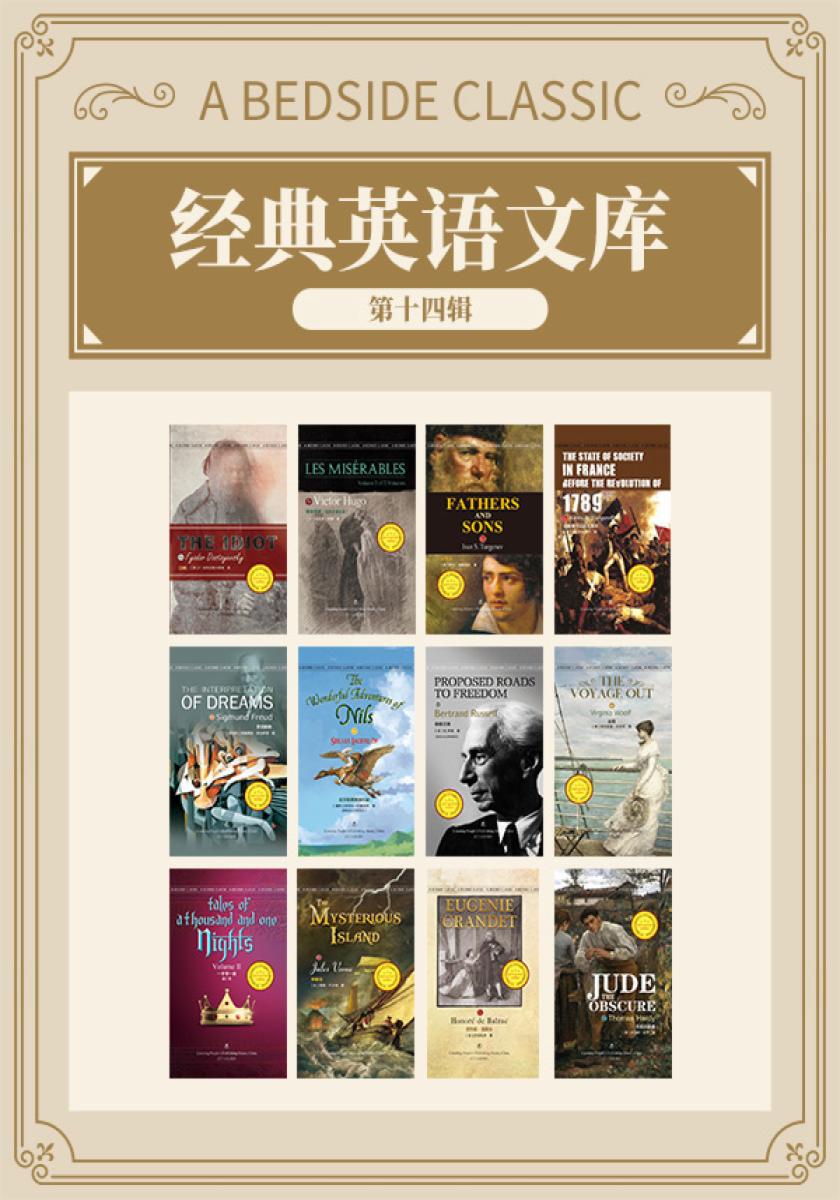
最经典英语文库(第十四辑)共12册
¥211.88
告别碎片式阅读,从阅读经典开始。“最经典英语文库”系列丛书(14辑)共12册:《梦的解析》《悲惨世界(五卷之第五卷)》《尼尔斯骑鹅旅行记》《欧也妮·葛朗台》《白痴》《父与子》《一千零一夜(第二卷)》《神秘岛》《旧制度与法国大革命》《远航》《自由之路》《无名的裘德》。
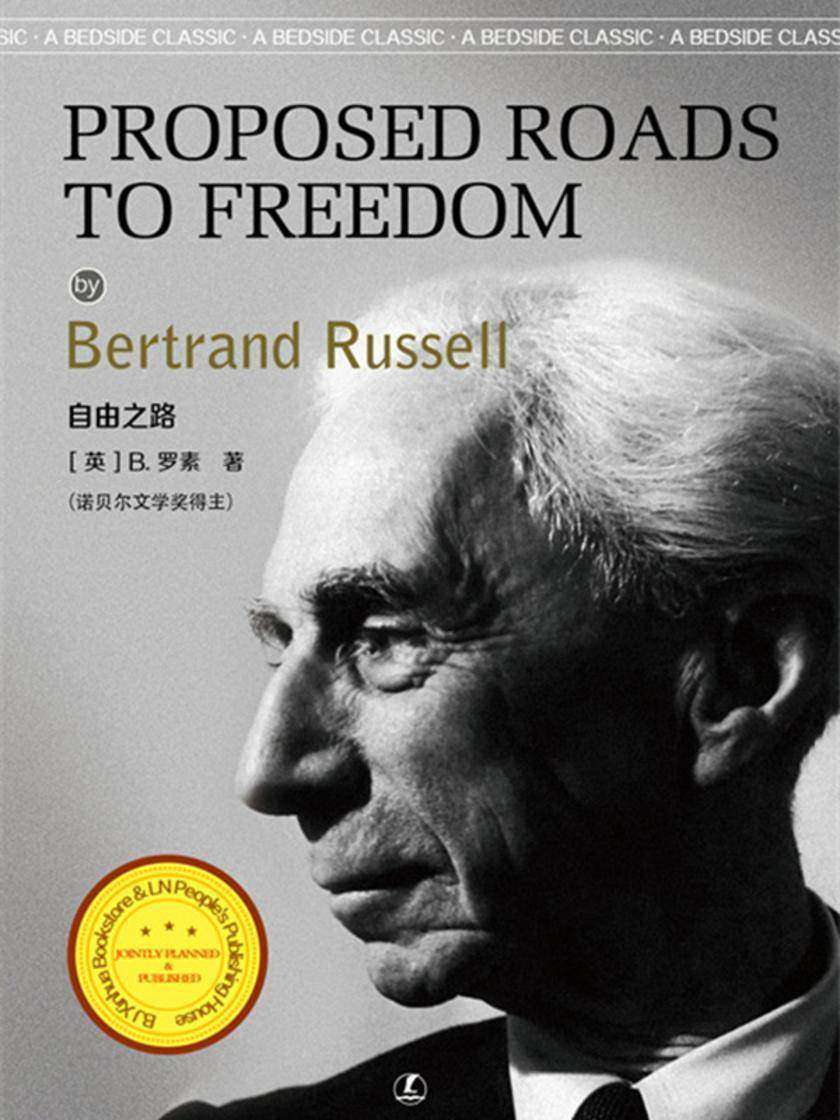
自由之路(英语文库)
¥8.99
本书作为我社“*经典英语文库”第14辑中的一种,精选由英国著名哲学家罗素的经典著作《自由之路》。本书较好地体现了罗素的社会关怀风格和正义、良知、壑智、温情、多姿多彩的博大胸襟。在书中,作者凭借他丰富的政冶的现实社会中,体现超越相对的人生自由,他首先从历史的角度简要地考察了一下壮大过程,继而对它们行批判地分析,虽然其中没有哪一派是尽善尽美的,可它们都对未来社会的蓝图贡献了自己的力量,读《自由之路》,可使广大读者了解自己的根本意义。
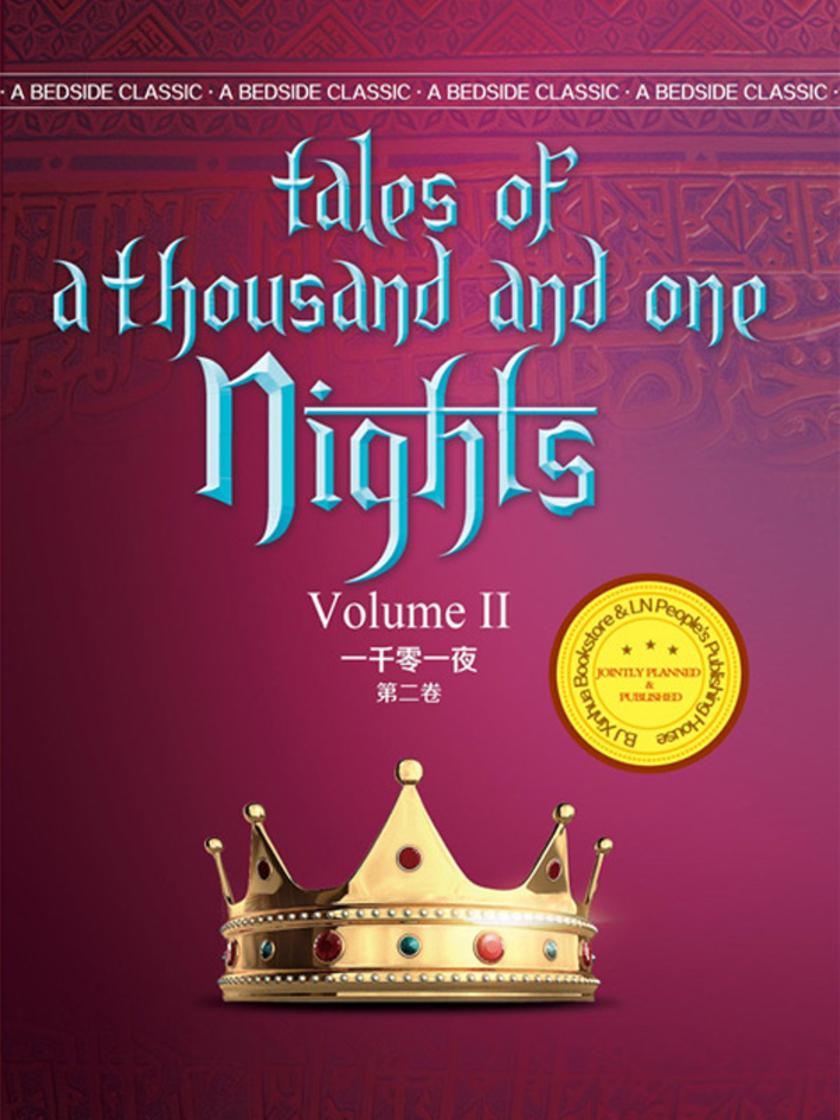
一千零一夜(第二卷)(英语文库)
¥16.99
本书被列我社“*经典英语文库”第14辑中的一种,是阿拉伯帝国创建后阿拉伯民族精神形成和确立时期的产物,共有三个故事来源:一是波斯故事集《赫左儿·艾夫萨乃》,二是伊拉克即以巴格达为中心的阿巴斯王朝时期流行的故事,三是埃及支马立克王朝时期流行的故事。
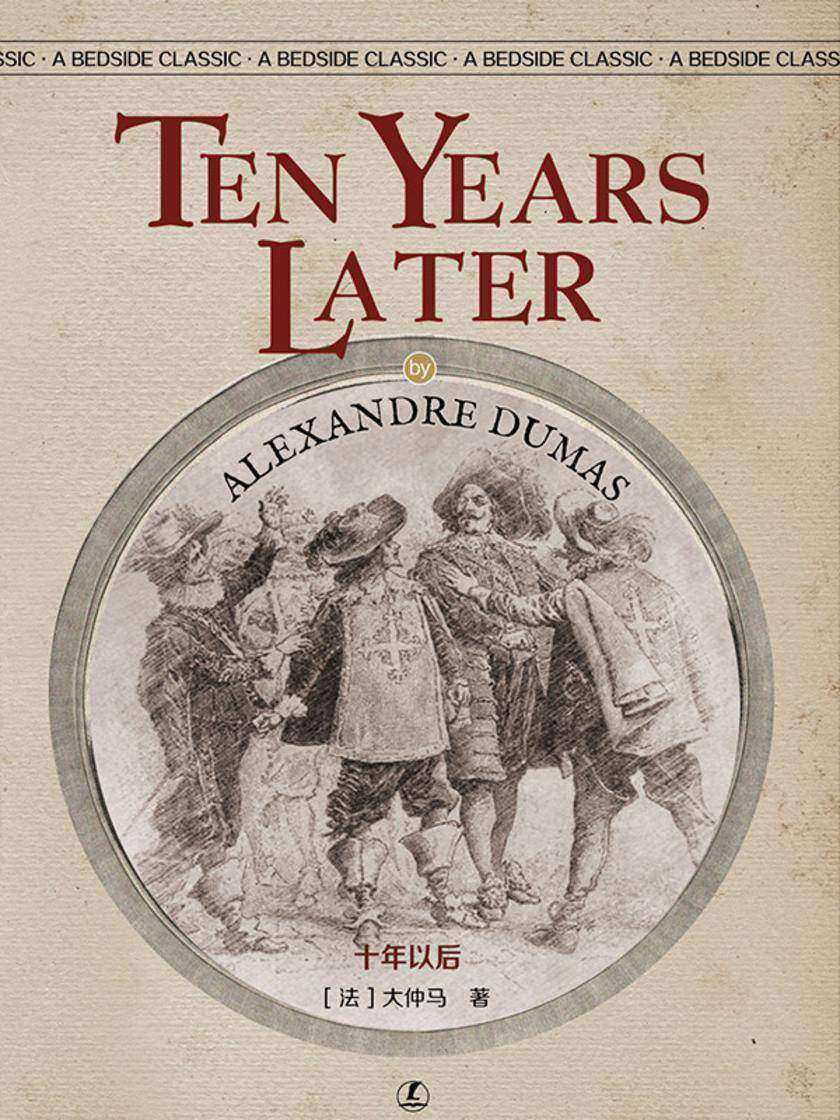
十年以后(英语文库)
¥23.99
本书作为我社“经典英语文库”第15辑中的一种,精选法国十九世纪著名作家大仲马所作长篇小说《十年以后》。本书是《三个火枪手》的续集。为“达塔尼昂浪漫三部曲”之一。三部曲的故事发展到《十年以后》一书中的阶段,个中的场景已不再是三十年前的刀光剑影、血雨腥风,取而代之的是法王路易十四挥金如土、宫闱暧昧、官场明争暗斗以及贵妇人之间争风吃醋等情节。其中,柔弱质朴、胆小怕事的路易丝·德拉瓦利埃小姐如何一步步被设局沦落为路易十四情妇的经过,为下来《路易丝·德拉瓦利埃》的展做足了铺垫。

无意识幻想曲(英语文库)
¥8.99
本书作为我社“经典英语文库”第15辑中的一种,精选由英国著名作家D. H. 劳伦斯的作品《无意识幻想曲》。D.H.劳伦斯被称为“英国文学伟大的人物之一”,长期以来受到大家的广泛关注。与任意时期任何国家的作家相比,劳伦斯有一极其鲜明,他的写作形式相当广泛,包括小说,短篇故事诗,意大利和俄国文学的英译,新建文学评论,社会评论,编史心理学笔记游记,他的游记覆盖了以上诸多的写作形式本书是其在心理学方面的代表作。
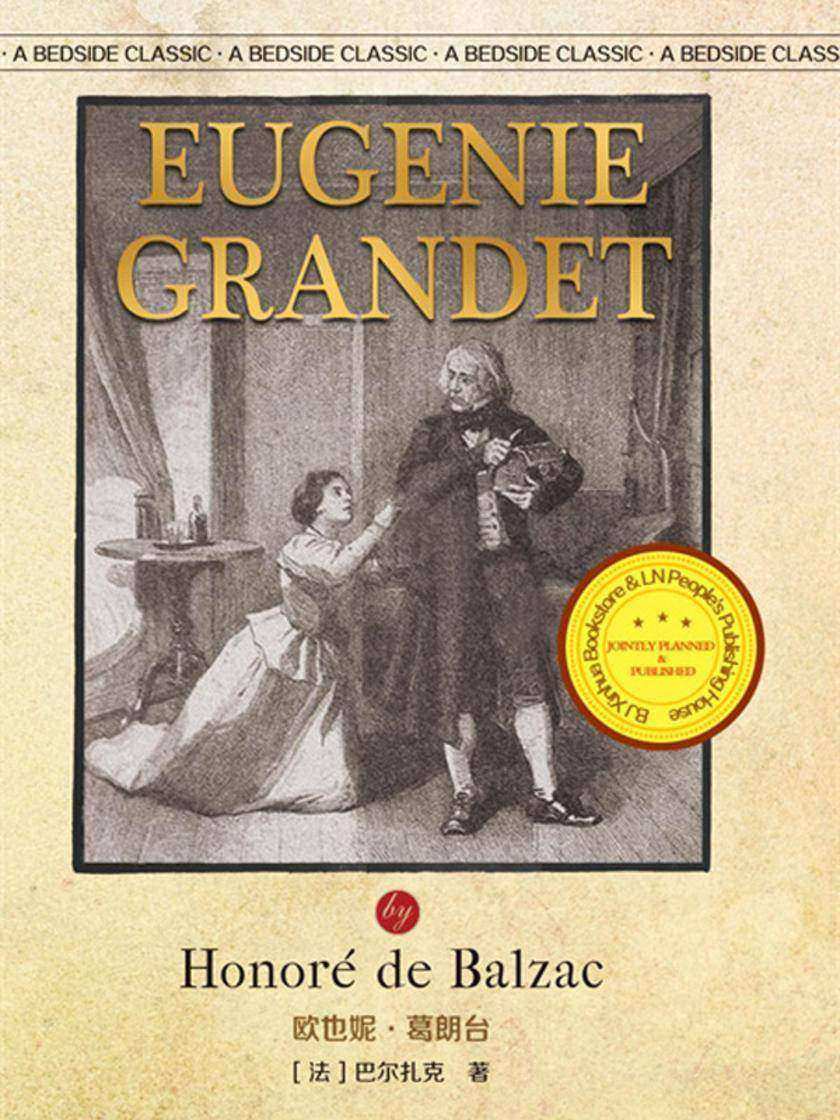
欧也妮·葛朗台(英语文库)
¥8.99
本书作为我社“*经典英语文库”第14辑中的一种,精选由法国著名作家巴尔扎克的经典作品《欧也妮·葛朗台》。作品收录于《人间喜剧》,叙述了一个金钱毁灭人性和造成家庭悲剧的故事,围绕欧也妮的爱情悲剧这一中心事件,以葛朗台家庭内专制所掀起的阵阵波澜、家庭外银行家和公证人两户之间的明争暗斗和欧也妮对夏尔·葛朗台倾心相爱而查理背信弃义的痛苦的人世遭遇三条相互交织的情节线索连串小说。
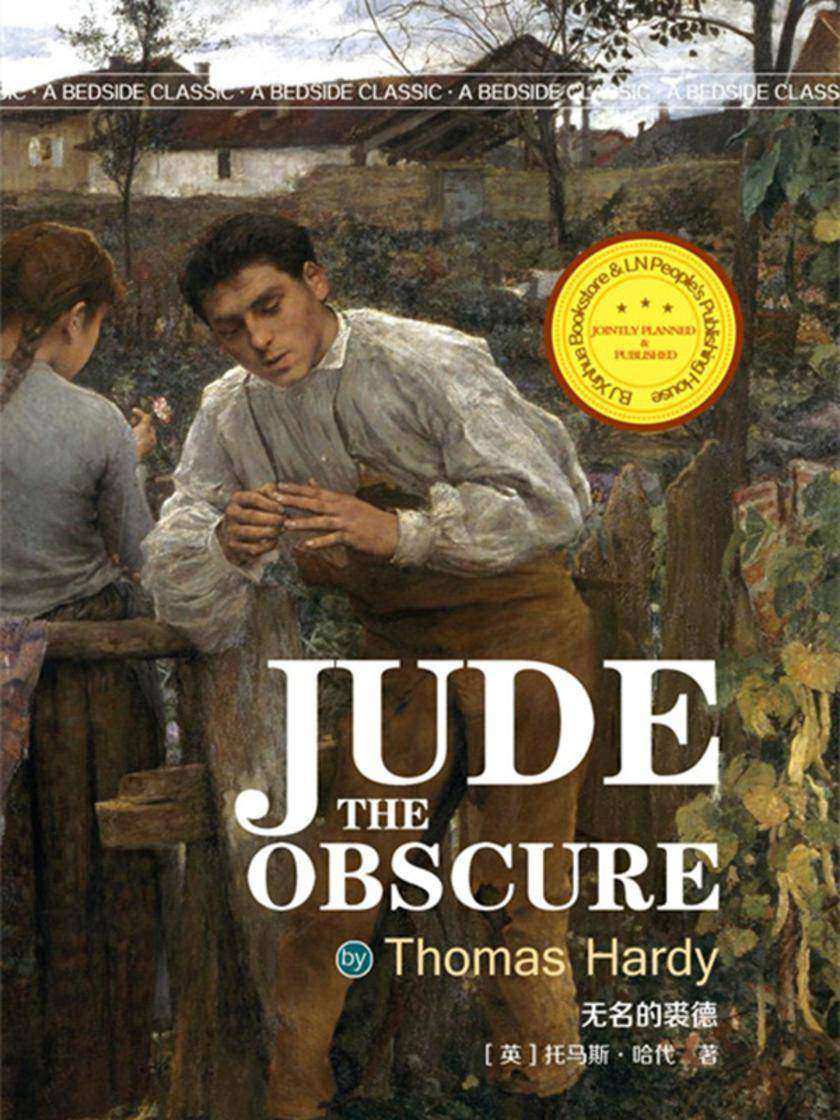
无名的裘德(英语文库)
¥19.99
·英国*杰出的乡土小说家、诗人哈代的代表作·抨了维多利亚时代的道德观念及婚姻制度,具有深远的历史意义
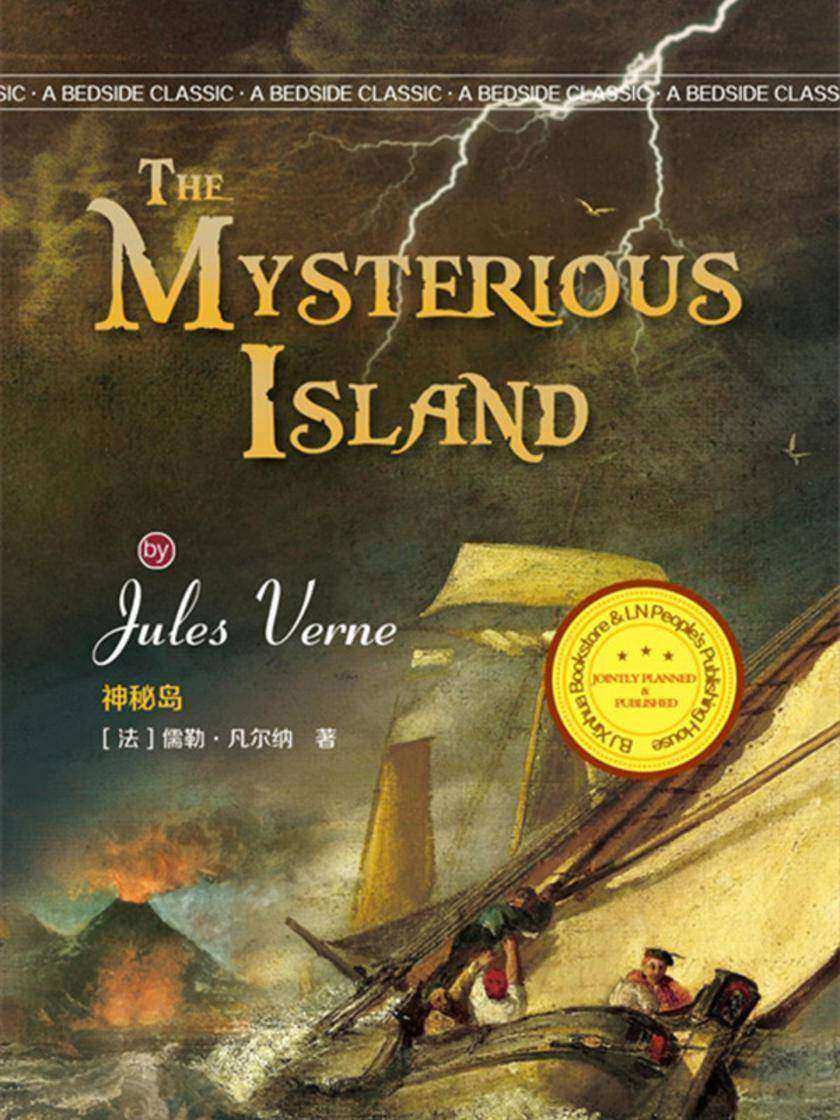
神秘岛(英语文库)
¥24.99
本书作为我社“*经典英语文库”第14辑中的一种,精选由法国著名作家儒勒·凡尔纳的经典作品《神秘岛》。作品讲述了在美国南北战争时期,几个被困在南军中的北方人,中途被风暴吹落在太平洋中的一个荒岛上,他们团结互助,建立起幸福生活,直至回到美国又重新始他们在岛上建立的事业的故事。
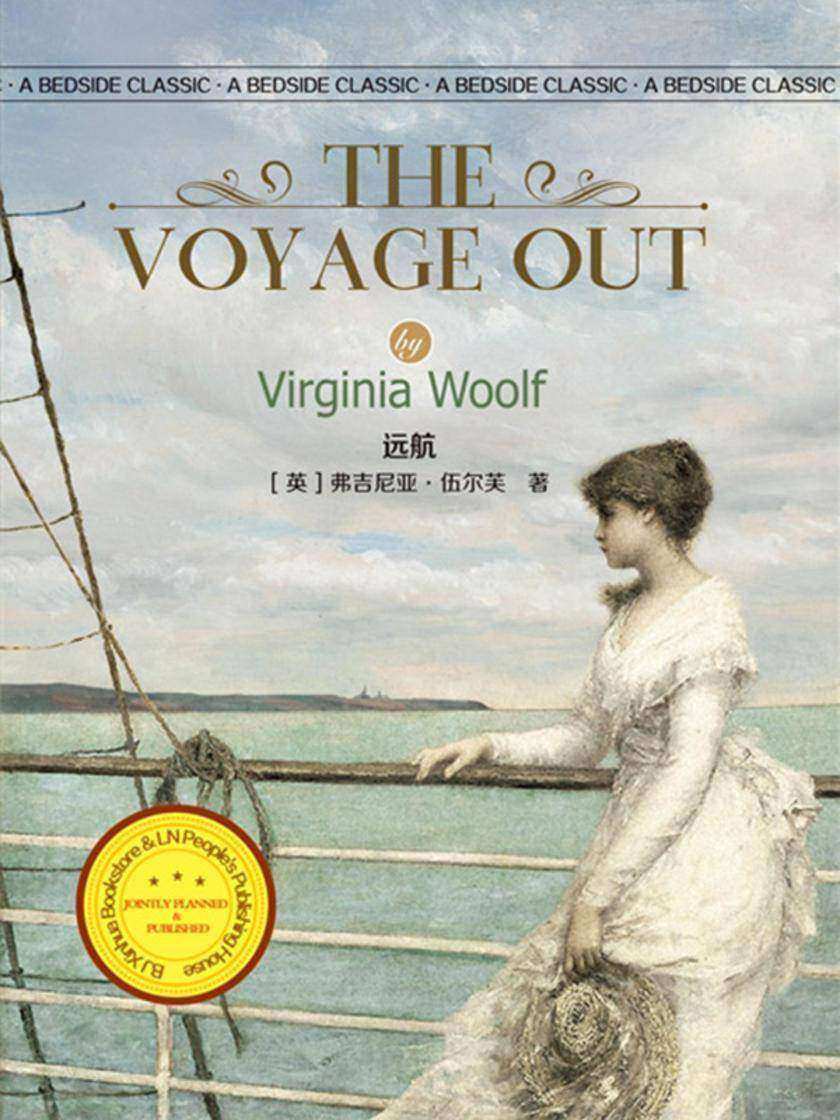
远航(英语文库)
¥16.99
·伍尔芙的*部长篇小说·对女性的成长和两性关系行了初次探讨·揭示了女主人公自我意识不断觉醒的过程
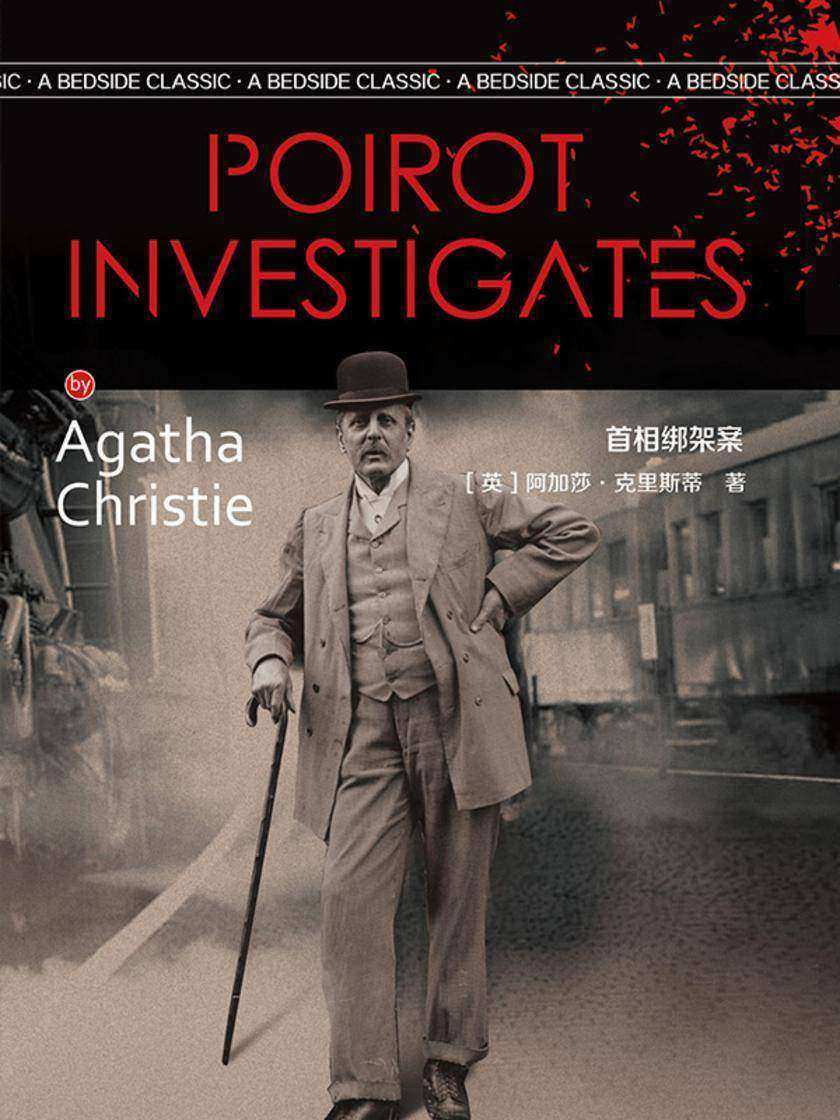
首相绑架案(英语文库)
¥8.99
本书作为我社“经典英语文库”第15辑中的一种,精选由英国著名女作家阿加莎·克里斯蒂的作品《首相绑架案》。本书又译作《波洛探案集》。阿加莎·克里斯蒂于1923年发表了一系列以波洛和黑斯廷斯为主角的短篇故事,连载于英国《The Sketch》杂志,次年选编了14篇,集结成她的个短篇小说集《首相绑架案》。如果说柯南道尔创了侦探小说的个黄金时代,那么克里斯蒂则是世界侦探小说史上的第二个黄金时代的代表人物。
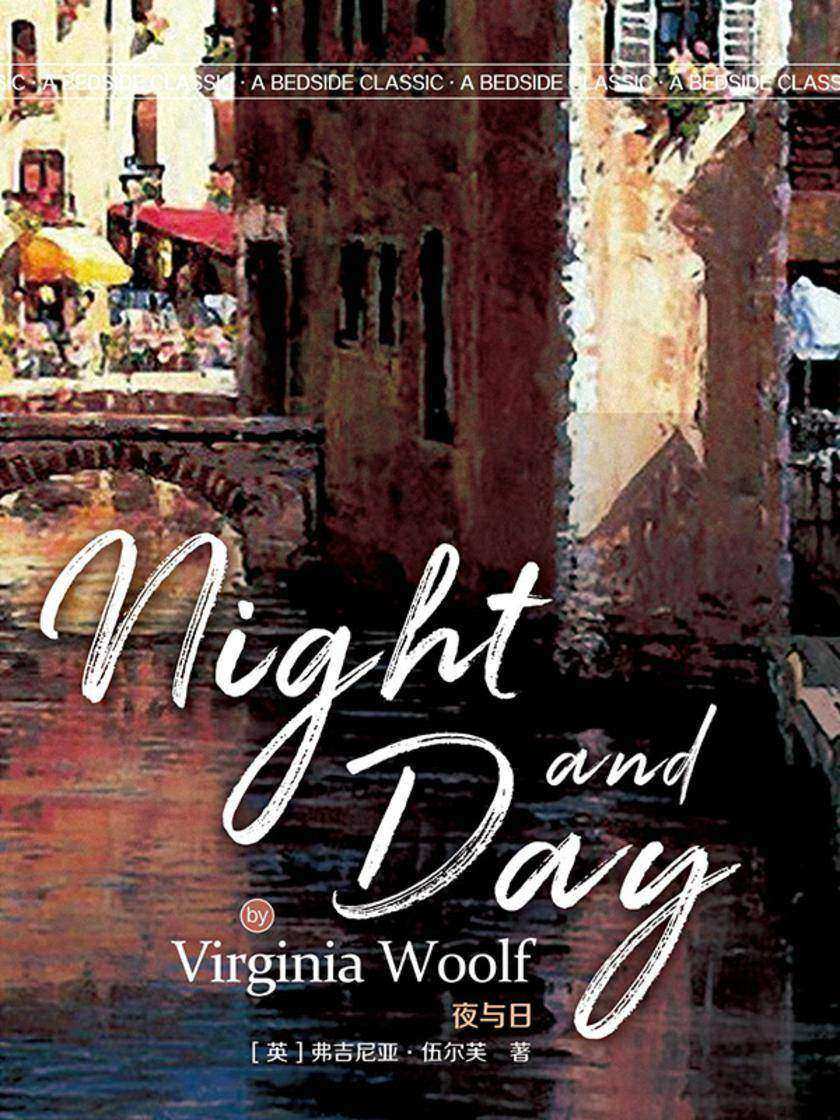
夜与日(英语文库)
¥19.99
本书作为我社“经典英语文库”第15辑中的一种,精选由英国著名作家弗吉尼亚·伍尔芙的经典作品《夜与日》。故事发生在爱德华七世时期的伦敦,将两位女主人公——凯瑟琳·希尔伯里和玛丽·达切特的日常生活和浪漫情怀行了对比,探讨了爱情、婚姻、幸福和成功之间的关系。故事有四位主人公:凯瑟琳·希尔伯里,玛丽·达切特,拉尔夫·德纳姆,和威廉·罗德尼,他们苦苦探索人生,追求爱情的真谛,找寻真正的自我。《夜与日》提到了妇女的参政权、爱情和婚姻是否可以共存、婚姻是否是幸福的前提等问题。贯穿全书的主题有星空、泰晤士河和切恩道。




 购物车
购物车 个人中心
个人中心



